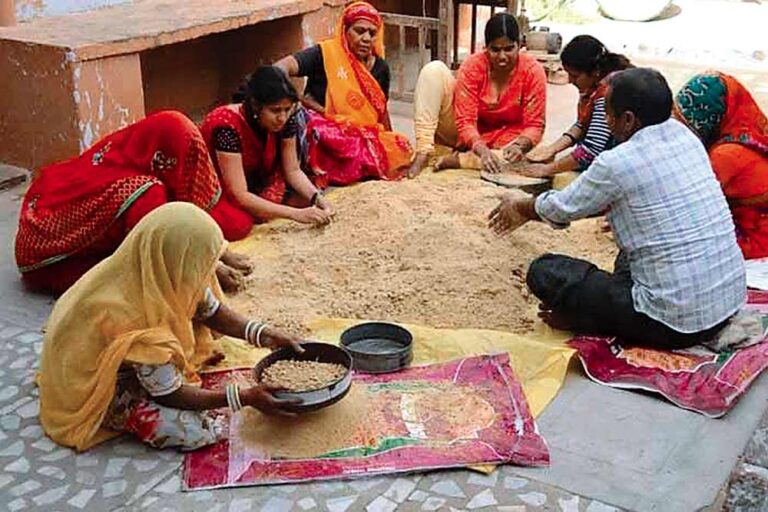
Correct nutrition can help alleviate the adverse effects of both cancer and the ensuing treatment.
Cancer devastates human body, and so do the chemotherapeutic treatment methods deployed to get rid of it. The strong medicines and corrosive chemotherapies weaken the body beyond healing. They make the recuperation process even more difficult. But, maintaining a healthy and nutritious diet throughout the recovery period and thereafter is a proven mechanism to cope with the adverse effects of cancer. Also, a balanced nutrition has several other perks on health overall.
Cancer has an undeniable nexus with the exponentially increasing traits of lifestyle disorder. Smoking, alcohol consumption, eating disorder, stress, lack of sleep, sedentary lifestyle, lack of physical activities, prolonged exposure to hazardous radiation – all these are the most common causes of lifestyle disorder. All of them have the potential to trigger the risk of getting cancer. This is why several cancer treatment repertoires often proactively include cutting off of many of these activities. Amidst these never ending examples of lifestyle disorder, a nutritious and balanced diet plays a pivotal role in keeping the risks at bay. It rejuvenates the human body by strengthening the immune system and thus reduces the susceptibility to infections and the possibility of succumbing to several other life threatening ailments including heart conditions.
Treatment of cancer often renders the affected human body very highly susceptible to multiple serious diseases. Foodborne illnesses are very common. Neutropenia is another health condition worth mentioning which exhibits an abnormal low count of white blood cells (Neutrophills). Microscopic organisms like fungi and gram-negative bacteria, available in food and drinks, often pose serious threats to the Neutropenic patients.
Neutropenic Diet – and guide
Safe preparation and handling of foods is more important than restricting intake of specific food groups, as balanced diet and nutrition is important for coping with chemotherapy and other kinds of cancer treatments. The diet concerns include
- Avoid raw or rare non-vegetarian food and uncooked or undercooked eggs. Check for the non-veg food quality well and Cook it well until it is well done.
- Thoroughly cook eggs (no runny yolks) and avoid foods containing raw eggs such as raw cookie dough or homemade mayonnaise etc.
- Go for pasteurized beverages. Boil the milk well and go for only packed curd/ yoghurt, fruit juices and beverages.
- Avoid food like cut fruits and salad, which are being exposed to open air for longer duration.
- Freshly cooked food should be included in the meal. Do not consume any food prepared in morning for lunch or dinner.
- Avoid raw sprouts, such as broccoli sprouts, pulses sprouts & alfalfa sprouts.
- Wash fresh fruits and vegetables before peeling. In addition, consume immediately after cutting.
- Go for pre-boiled water for drinking.
- Well roasted nuts and toasted breads to be consumed.
- If travelling focus on consuming whole fruits with thick peels like oranges/ apples/ banana.
Major challenges to be taken care of
- Eat keeping the oral health in mind
Chemotherapy and radiation therapy during cancer specifically in head or neck often causes irritation in the lining of the mouth, throat, and esophagus. This makes eating and swallowing a difficult task. Maintaining proper oral hygiene is imperative in cases of mouth sores.
- Cut off alcohol consumption
Alcohol has no boons and only banes. It contributes to dehydration. It weakens body’s immune system and adds no nutritional values to the already compromised body.
- Hydration is must
Dry mouth is a very common side effect of chemotherapy. To put a check on dehydration, adequate supply of fluids is imperative, barring caffeinated beverages as they can exacerbate the symptoms of dehydration. 8-10 glasses of water is likely to suffice.
- Frequent small meals throughout the day
Dividing the daily nutrition obtained from food into small 5-6 ‘mini’ meals throughout the day is always beneficial. It never lets the body run out of calories which, in turn gives the body adequate strength to cope with the harsh treatment methods. It also helps to deal with the side-effects like nausea. Eating every three hours thus is a nice plan to keep the body going.
- Poor dental health
Missing teeth, receding gums leading to loosening of teeth, mouth sores, and jaw pain- all these ultimately destroy normal appetite
Along with all these, its necessary to be very particular about healthy fats, good amount of protein in the diet. e.g- Olive oil/ Fish oil/ Avocados/Nuts and Seeds. In addition, eggs/ lean meat/ low fat dairy food/ soya foods etc.
Healthy delight for cancer patient
· Strawberry/ black grape yoghurt
Ingredients
- 500 gm of thick curd
- 5-6 strawberries
- 1 cup chopped grapes
- Khand or organic sugar for sweetness
- Ground nuts mix (almonds/walnuts/pistachios)
- Ground coconut – 2 tbsp.
Method:
- Mix all the ingredients well and enjoy at room temperature. (remember to take packed curd and wash the fruits properly or just blanch it in lukewarm water)
· Fennel + Flaxseed Shakarparas
Ingredients
- 4 cup flaxseed grounded
- 1 cup whole wheat Atta
- 1 tbsp. of herb
- Salt to taste
- 1 tbsp. of olive oil
- Grinded nuts mix (almonds/walnuts/pistachios)
- Grinded coconut – 4 tbsp.
Method:
- Combine all the ingredients in the bowl and knead into dough. Keep it aside for 30 minutes.
- Roll down the dough in thick big chapatti and cut down in diamonds.
- Bake the Shakarpara in preheated oven for 15 minutes at 180 degree Celsius.
- Serve hot or store it in airtight container.
Recent Post
Crafted by Webcreatore Digital Solutions LLP.






